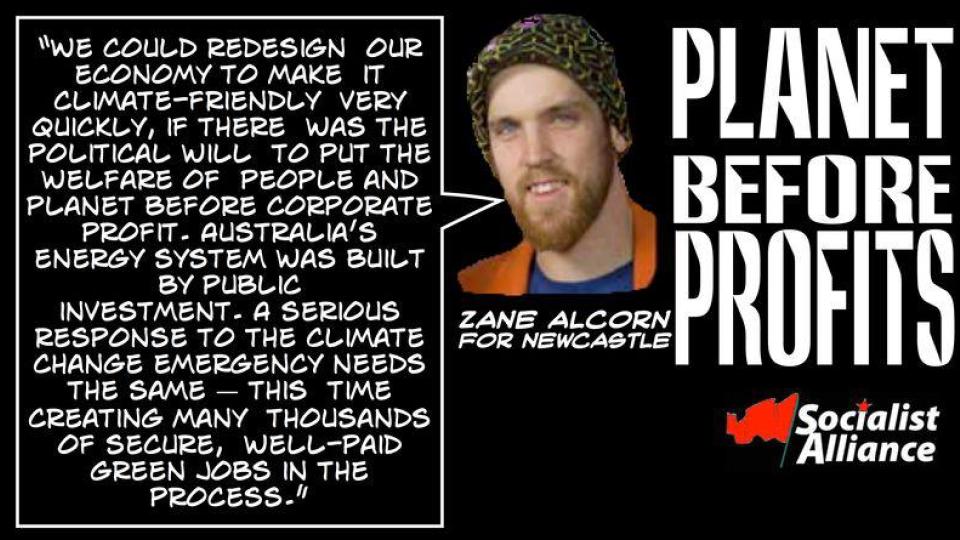Take back the energy sector!
We could redesign our economy to make it climate-friendly very quickly — if there was the political will to put the welfare of people and planet before short-term profit.
Australia’s energy system was built by public investment. A serious response to the climate change emergency would have the government do it again — this time creating many thousands of secure, well-paid green jobs in the process.
In the past few decades, state governments have privatised public energy assets or made state-owned bodies behave like private firms. In that time, energy prices have sky-rocketed while energy sector employment has nose-dived.
If energy were put into public hands, and overseen by workers, unions and community bodies, it could develop an Australia-wide plan to cut greenhouse gas emissions in line with the climate science, which says we can’t delay any longer.
Rather than new gas or coal-fired power stations, the government could invest in large- scale wind and solar thermal plants for all our energy.
Instead of throwing the corporations another tax cut, it could invest to retrofit our homes and buildings to make them energy efficient.
Rather than giving handouts to coal companies, it could plough that money into turning coal-dependent regions such as the Hunter and Latrobe valleys into renewable energy manufacturing hubs.
A publicly-owned renewable energy sector is the smart economic move too. Once a 100% renewable energy system is in place, there are no more fuel costs. That would save Australia billions of dollars every year, forever. Within decades the investment will be repaid.
The reason there is no widespread discussion about putting the energy sector under public ownership and community control because corporate vested interests and pro-market true believers dominate the mainstream debate on climate solutions.
Against the evidence, many insist that setting up a market for pollution — a market that trades in “bads” instead of “goods” — is the best way to cut emissions.
With its huge handouts to polluters and international record of failure, carbon pricing cannot win wide support from ordinary people or cut emissions quickly. Similar carbon markets run by the UN and the EU have recently imploded in spectacular fashion.
Energy is far too important to our future to be left in the hands of corporate directors and investment bankers. Just like we need public health and public education, we also need a job-rich, public-owned energy sector that can make our power clean and keep prices low.
